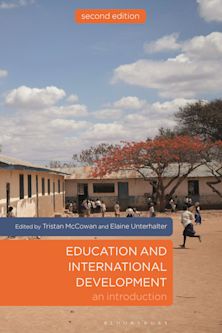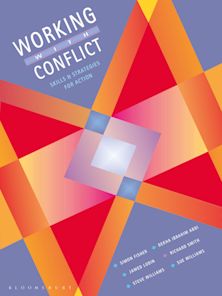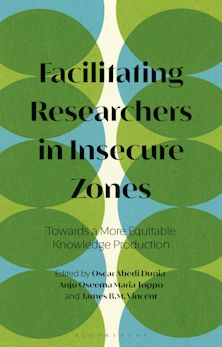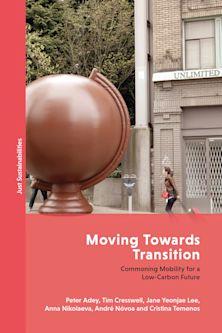- Home
- ACADEMIC
- International Development
- Development Policy and Practice
- Today We Drop Bombs, Tomorrow We Build Bridges
Today We Drop Bombs, Tomorrow We Build Bridges
How Foreign Aid became a Casualty of War
Today We Drop Bombs, Tomorrow We Build Bridges
How Foreign Aid became a Casualty of War
You must sign in to add this item to your wishlist. Please sign in or create an account
Description
'An indispensible inquiry into our moral health and humanity.'
LSE Review of Books
The war on terror has politicised foreign aid as never before. Aid workers are being killed at an alarming rate and civilians in war-torn countries abandoned to their fate.
From the ravaged streets of Mogadishu to the unending struggle in Helmand, Peter Gill travels to some of the most conflict-stricken places on earth to reveal the true relationship between the aid business and Western security. While some agencies have clung to their neutrality against ever stiffer odds, others have compromised their impartiality to secure the flow of official funds.
In a world where the advance of Islamic State constitutes the gravest affront to humanitarian practice and principle the aid community has faced in decades, Gill poses the crucial question – can Western nations fight in a country and aid it at the same time?
Table of Contents
Part I: Front Lines
1. End of the White Saviour
2. Development at Gunpoint
3. Meetings with Remarkable Men
4. Taking a Bullet for Polio
5. Frontier Manoeuvres
6. Blue UN, Black UN
7. Delay Costs Lives
8. Acts of Faith
Part II: Home Fronts
9. With All Those Who Suffer
10. When Aid Becomes a Crime
11. Doing Well by Doing Good
12. The Police, Not the Stasi
13. Making Poverty History?
14. French Lessons
15. Running Out of Words
Conclusion: How Many Cheers for Neutrality?
Product details
| Published | 15 May 2016 |
|---|---|
| Format | Ebook (PDF) |
| Edition | 1st |
| Extent | 321 |
| ISBN | 9781783601240 |
| Imprint | Zed Books |
| Publisher | Bloomsbury Publishing |
About the contributors
Reviews
-
[A] brisk, hard-hitting narrative… Gill's informed, on-the-ground reporting from Afghanistan, Pakistan, Somalia, and Syria demonstrates how Western aid agencies have, through their increasing reliance on government funding, surrendered their independence… Tales of corruption and compromise, of interest to anyone who's ever contributed to a humanitarian aid organization.
Kirkus Reviews
-
An indispensible inquiry into our moral health and humanity.
LSE Review of Books
-
[Gill's] analysis of what ensues when charities align themselves too closely with the aims of their governments, as in Afghanistan, is nuanced and piercing…His clear eye is a sure guide through some pretty fuzzy terrain.
New Internationalist
-
This is a reasoned and authoritative account.
Peace Researcher
-
[An] urgent and incisive book of reportage ... Gill's deft analysis and reporting provide an enlightening account of a new world disorder, where the “civilized principles supposedly governing a war” have been forfeited.
Publishers Weekly
-
Gill weaves his way from Syria to Afghanistan to Pakistan and Somalia, stopping in Geneva to recount the beginnings of the International Committee of the Red Cross and in Paris to learn about the origins of Médecins Sans Frontières (MSF), building up a complex and sometimes disturbing mosaic of experiences good and bad.
The Tablet

ONLINE RESOURCES
Bloomsbury Collections
This book is available on Bloomsbury Collections where your library has access.


































